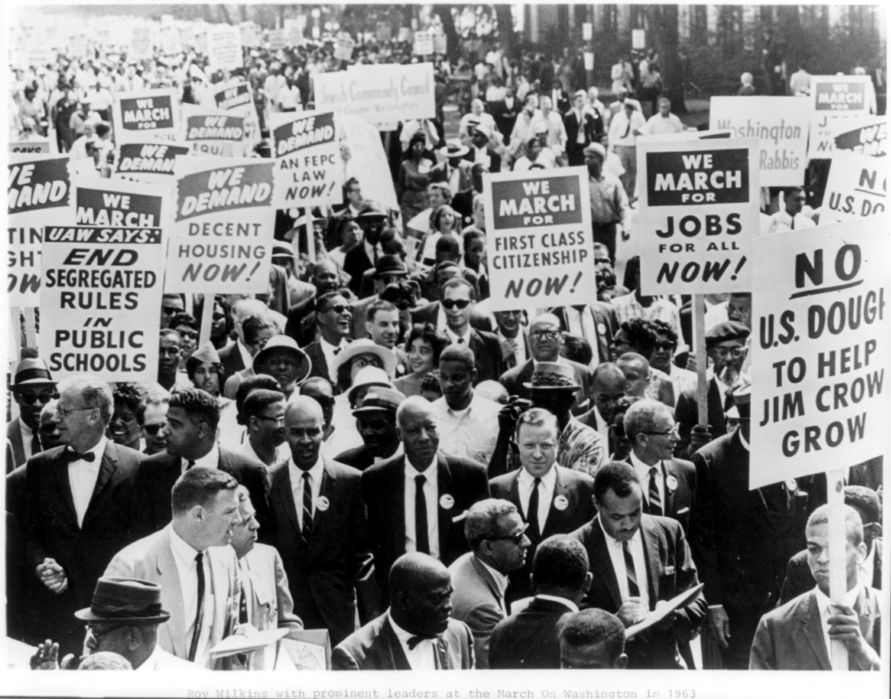In retrospect, the Civil Rights Movement had two major victories. The firstwas the 1964 Civil Rights Act, which made discrimination in public areas illegal. The second victory was the 1965 Voting Rights Act, which allowed African Americans to become engaged in the political spectrum by removing restraints previously placed on them voting. While these victories gave African Americans more rights, they ultimately didn’t equal out the sacrifices made by many African Americans during this movement. The movement, historically believed to have been about political rights, was actually a battle against moral injustices.
"The River of No Return: The Autobiography of a Black Militant and the Life and Death of SNCC" is written by Cleveland Sellers, a SNCC volunteer who was extremely committed. He tells the story of his involvement by recounting events during the Civil Rights Movement, from the sit-ins to the murders of Civil Rights activists. More importantly, he tells a first-hand account of the history of SNCC and his dedication to the Civil Rights Movement.
In 1960, Dr. Martin Luther King’s Southern Christian Leadership Conference (SCLC) was held on Shaw University’s campus in Raleigh, North Carolina. During this conference, students established a Temporary Coordinating Committee. There, they established their goal:
“Justice for all overcomes injustice. The redemptive community supersedes systems of gross social immorality. By appealing to the conscience and standing on the moral nature of human existence, nonviolence nurtures the atmosphere in which reconciliation and justice become actual possibilities."
(Sellers, 39)
James McDew took over the committee and removed Temporaryfrom their title, because he and the members of this committee “realized they were in for a long, hard, struggle.” (Sellers, 44) McDew explained this committee realized that they needed to do something about the “black image”. This organization vowed the Southern student movement wouldn’t stop until “every vestige of racial segregation and discrimination are erased from the face of the earth.” (Sellers, 44)
Sellers noted that there were two approaches to what constituted bettering the African American life. “SNCC’s members were convinced that black people would be free only when they took their destiny in their own hands and forced a change in the status quo.” (Sellers, 117) He then stated, “SCLC’s members, on the other hand, believed that blacks would be free when the federal government took steps to insure that their rights were not violated." (Sellers, 117) SNCC believed that the demonstrations held by SCLC not only were just to get attention, but they were “counterproductive. They make the people feel good, but they don’t really accomplish very much.” This showed that early on SNCC realized that relying on the government was going to get them nowhere in their struggle. They were only adding to it by making vague laws.
Sellers noted, “We were absolutely convinced that there was no viable future for blacks, poor blacks especially within the Republican and Democratic parties. We were also convinced that the federal government, where we had looked for support in the past, was part of the problem.” (Sellers, 155) Here, it shows that African Americans realized that just political rights wouldn’t improve their lives. While political rights certainly helped, they were vaguely interpreted by people in such a way that discrimination was still extremely prominent. African Americans realized that “Integration has little or no effect on such problems,” (Sellers, 156) and those political rights meant little, if anything. Because of this, Black Consciousness developed.
“What is Black Consciousness? More than anything else, it is an attitude, a way of seeing the world…an admitted consequence of the failure of the movement up to that point, forced us to begin the construction of a new, black value system. A value system geared to the unique cultural and political experience of blacks in this country. It helped us understand the imperialistic aspects of domestic racism. It helped us understand that the problems of this nation’s oppressed minorities will not be solved without revolution.” (Sellers, 157)
Black Consciousness is the best example of African Americans realizing that discrimination couldn’t legally be fixed; rather there was a moral issue in America.
Dr. Martin Luther King Jr. once said, “The moral arm of the universe is long—but it bends towards justice.” I believe this to be true about the Civil Rights struggle in America: though African Americans have not accomplished all that they want to in their struggle, they have certainly come a long way. SNCC changing from a non-violent organization to a radical, militant organization shows just how difficult the Civil Rights Movement was. People that were supposed to be working together ended up fighting one another because they had no direction as to how to solve their injustices. Both “victories” (the 1964 Civil Rights Act and the 1965 Voting Rights Act) show that the government tried to help better the lives of African Americans through law, but ultimately did not help them at all.
“No one can guarantee a mistake-free life, certainly not a mistake-free revolution. We have to keep on getting up-doing the best we can, learning from our mistakes and not worrying about the rest!” (Sellers, 137) Though SNCC intended to better the African American’s life in America, their own cleavages tore apart their organization, which was built upon the hope to create a better society. Though they failed as an organization, they succeeded in showing that there was a moral issue in America, not just a political one — which is a not so new realization in today's society.






















